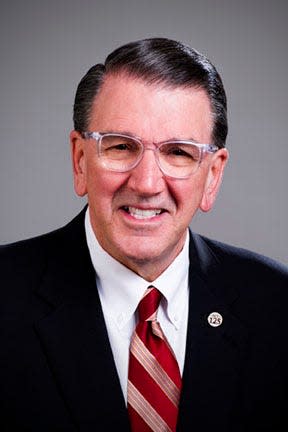Wendler commentary: Individualism as the ultimate expression of freedom
Thoughts from a Principled Conservative Outpost — Sixth in a series on the aspects of Panhandle conservativism.
In free societies, and constitutional republics, individual identity and merit, plus the equality of all in the pursuit of life’s aspirations, must be recognized as essential to the sustenance of a healthy community. The promotion of liberty — equal treatment of all regardless of group membership — and the recognition that people’s unique experiences and beliefs must be respected by “others” as one pursues their aspirations, are necessary means to enhance both personal and social growth. According to Jason Blakely in an essay published in the Chronicle of Higher Education, group membership has shifted dramatically in the past few decades. What used to be the haven of one group or another is now the chagrin of both conservative and liberal ideologues in the form of identity group politics.

It is clear to me from my perch in the Texas Panhandle that rugged individualism transcends identity politics. A practically minded, stand-on-your-own-2-feet-culture allows people to be who they are, the way they would like to be. However, in the traditional Grange mentality, respect for neighbors is an essential ingredient in the social and cultural mix. “Me, me, me” doesn’t work. There must be a “we, we, we” in the mix. I have seen this dramatically in the past month due to the horrendous wildfires that ravaged the Texas Panhandle. An expert in disasters told me he noticed in the Panhandle a tripartite of concerns for those who experienced grievous losses as a result of the fires: family, neighbors and possessions — the ultimate expression of the combination of self-reliance and community compassion.
A powerful manifestation of the concept of citizenship is, “The relationship between an individual and the state to which the individual owes allegiance and, in turn, is entitled to its protection. It carries with it the activism of Aristotle's definition- a citizen is one who rules and is ruled in turn,” according to historian Linda K. Kerber. ”Citizenship applies the status of freedom with accompanying responsibilities.” The first and often smallest group in which anyone has citizenship is the family. From prehistoric times until today, the family is critical to social progress. According to Johns Hopkins Magazine, The Coleman Report, published in 1966 (despite criticism for methodological flaws), equated strong family life with educational success and numerous positive outcomes from this most primitive form of group membership. The Report is considered the benchmark of 20th-century educational sociology. Embedded is the concept that accepted moral frameworks, like rights coupled with responsibilities, are important to the future health of our society. To our collective misfortune, moral absolutes from all sides are being excised from the bedrock on which our nation was founded. “The Bill of Rights Institute claims certain virtues are required to sustain citizenship in a free society. James Madison, in “Federalist No. 55,” wrote, that while…there is a degree of depravity in mankind which requires a certain degree of circumspection and distrust, so there are other qualities in human nature which justify a certain portion of esteem and confidence.” It is the burden of individual citizens to understand the interaction of community virtue and the exercise of personal liberty.
Stereotypes, rather than individual aspirations and accomplishments, are often used to classify people and ideas. This view limits individual expression, impedes the development of equal opportunities, affects personal and community well-being under the pressure to conform, creates divisions, influences behavior and most tragically eliminates the need for cultural understanding. When people are treated as individuals, growth flourishes. Unique needs and aspirations, self-understanding, group appreciation, autonomy and the enhancement of intrinsic motivation all lead to a strong sense of personal identity. Healthy individualism in a word.
Individualism, and the freedom implied by it, without a sense of corporate or community responsibility, is a pipedream that may approach anarchy. Ayn Rand hints at the delicate balance in “The Virtue of Selfishness.” She writes, ”The principle of man’s individual rights represented the extension of morality into the social system — as a limitation on the power of the state, as man’s protection against the brute force of the collective, as the subordination of might to right. The United States was the first moral society in history.” Whether viewed as a positive or negative expression of individual freedom relative to the community, individualism is, in fact, the condition of people in society. History tells us this story repeatedly.
At West Texas A&M University, we are challenged to imbue in our students an obligation to understand the balance between individualism, even when “rugged” or tough in its expression, and an appreciation for belonging to something larger than self.
Increasingly, this is a challenge that only an appreciation for the history of our nation as a republican form of government can help us navigate.
Walter V. Wendler is President of West Texas A&M University. His weekly columns are available at https://walterwendler.com/.
This article originally appeared on Amarillo Globe-News: Wendler commentary: Individualism as ultimate expression of freedom
